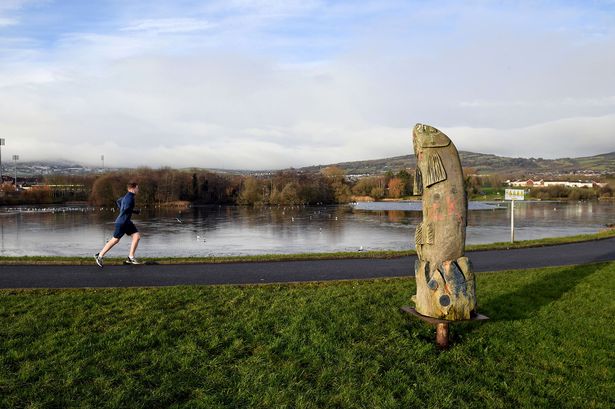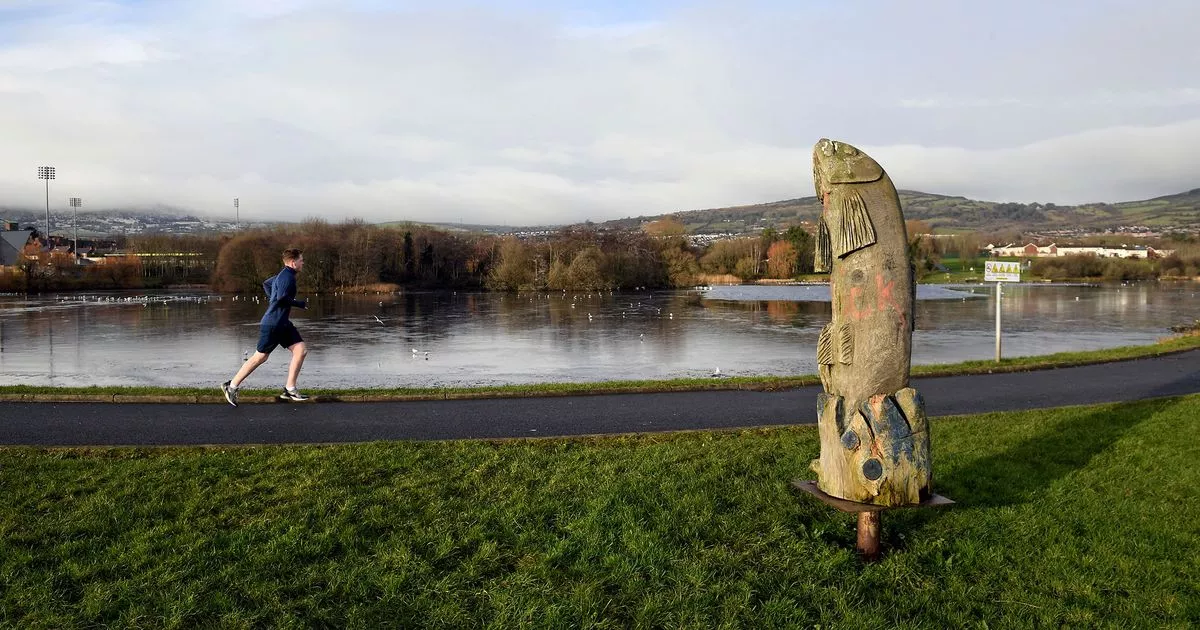The situation is currently being kept under review Waterworks Park, Belfast.(Image: Justin Kernoghan/Belfast Live)
Waterworks Park, Belfast.(Image: Justin Kernoghan/Belfast Live)
The playgrounds and grass pitch at a North Belfast park have been temporarily closed due to a bird flu outbreak.
Belfast City Council confirmed that bird flu was deteced in two wild swans at the Waterworks park, with both of the childrens play parks at the site and the grass pitch being closed to the public as a precautionary measure.
The rest of the park remains open for use, with the situation being kept under review. The council said they have been engaging with the Department of Agriculture, Environment and Rural Affairs (DAERA) and Public Health Agency on the matter.
READ MORE: Tributes paid to Shankill grandmother who is now ‘reunited with her sons’READ MORE: ‘I don’t want poo on my shoes’: Belfast pre-schoolers bid to tackle dog fouling on their street
They have advised members of the public to keep their distance from birds and their droppings, not to feed birds, and to keep dogs on leads away from birds. The council has also called for regular hand washing and no fishing.
A spokesperson for Belfast City Council said: “Avian flu has now been confirmed in two birds at the Waterworks. The park remains open, but both the playground and the grass pitch have been closed as a precautionary measure.
“The Public Health Agency advises that the risk to public health is very low, but we ask visitors to all our parks and outdoor spaces to follow public health advice to avoid contact with birds, keep dogs on leads, and maintain good hand hygiene.
“Any distressed birds should be reported to park wardens or by calling 028 9032 0202. Dead birds can be reported directly to DAERA using their online reporting tool. We are keeping this situation under review and will continue to work closely with DAERA and the Public Health Agency.”
Animals that are considered to be wild, that being that they are not under the care or control of any person, are not required under legislation to be provided for in terms of immediate veterinary treatment nor intervention from landowners.
If you find a sick or dying wild bird, these can be reported to the landowner. It is their decision to determine any further course of action.
A spokesperson for DAERA said: “Highly Pathogenic Avian Influenza (HPAI) has been detected in swans at locations across Northern Ireland (NI) – Belfast, Newtownards, Armagh, Newry and Dungannon. This follows four confirmations in kept birds across NI. The latest situation is continually updated on the DAERA website.
“DAERA’s primary function is the control of avian influenza (AI) in poultry and captive bird flocks and is it is not involved in control of the disease in wild species. DAERA collects dead wild birds for AI surveillance purposes to help us understand if, and when the virus is present in NI and how it is distributed geographically.
“Once HPAI has been detected in a specific area, further testing is not required and therefore, not all birds will be collected.
“Do not pick up or touch sick, dying or dead birds, and keep pets away from them. If you find dead waterfowl (swans, geese, or ducks) or other dead wild birds, such as gulls or birds of prey report them using the DAERA Dead Wild Bird Online Reporting Tool on the DAERA Avian Influenza Hub here.
“Reports will be assessed and a decision made on whether to collect and sample the carcase for AI. Where dead wild birds are not required for surveillance purposes it is important to note that the routine collection of dead wild birds and their disposal, if deemed necessary, rests with the landowner. If you find any other single dead birds, or dead garden birds, these do not need to be reported to DAERA.”
The current public guidelines from the Public Health Agency are as follows:
- do not pick up or touch sick, dying or dead poultry or wild birds, and keep pets away from them;
- avoid contact with surfaces contaminated with bird faeces;
- avoid untreated bird feathers (such as those found in the environment) and other bird waste;
- maintain good personal hygiene with regular hand washing with soap and use of alcohol-based hand rubs.
For all the latest news, visit the Belfast Live homepage here and sign up to our daily newsletter here.
